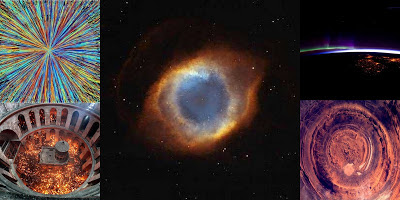Mystical
Nativity (Тайнственото Рождество)
е картина от около 1500 г. –1501 г.
от италианския ренесансов майстор
Сандро Ботичели (Sandro Botticelli),
в Националната галерия в Лондон
е картина от около 1500 г. –1501 г.
от италианския ренесансов майстор
Сандро Ботичели (Sandro Botticelli),
в Националната галерия в Лондон
Превод от английски
Рождеството (Христово)
Сред воловете (аз – бавен като
вол)
виждам как в обора славата расте,
което, с волска тъпота най-сетне
ми дава силата на вол.
виждам как в обора славата расте,
което, с волска тъпота най-сетне
ми дава силата на вол.
Сред магаретата (като тях съм инатлив
и аз)
виждам Спасителя си там, де сеното търсех аз.
Дано безумието ми звероподобно ми даде поне
търпение на зверове.
виждам Спасителя си там, де сеното търсех аз.
Дано безумието ми звероподобно ми даде поне
търпение на зверове.
Сред овците (като овца се отклоних
– от трън на глог)
гледам яслата, където е положен моят Бог.
О, нека блеещата ми природа ми спечели там
МАЛКО ВЪЛНЕСТА НЕВИННОСТ! (а не срам!)
гледам яслата, където е положен моят Бог.
О, нека блеещата ми природа ми спечели там
МАЛКО ВЪЛНЕСТА НЕВИННОСТ! (а не срам!)
Клайв Стейпълс Луис
(К.С. Луис – авторът на "Хрониките на Нарния",
с право би могъл да нарече този бисер и
‘Да се учим от животните’.
Молитва, която зове към сила, търпение и невинност. )
с право би могъл да нарече този бисер и
‘Да се учим от животните’.
Молитва, която зове към сила, търпение и невинност. )

















